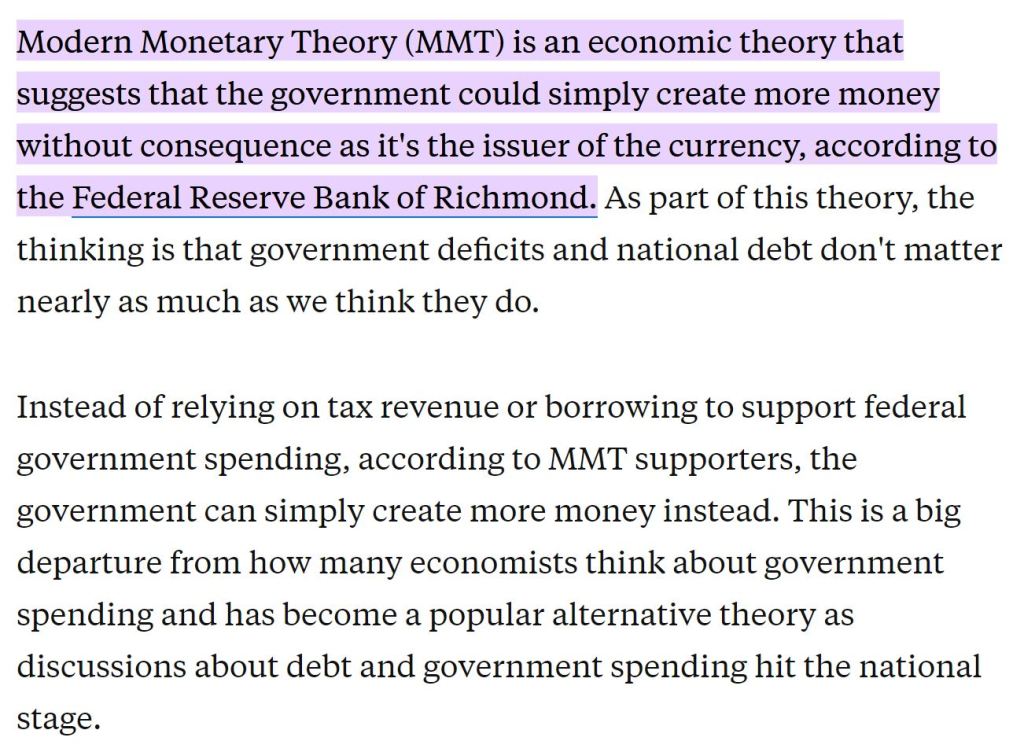Check out this definition:
“Modern Monetary Theory (MMT) is an economic theory that suggests that the government could simply create more money without consequence as it’s the issuer of the currency, according to the Federal Reserve Bank of Richmond.”
Which seems to imply that taxation is obsolete, as the second paragraph hints:

Excellent. I’m totally in.
File under: Voodoo economics, Wishful thinking, Ain’t gonna happen.
If you’re going to address an idea, it seems like basic scholarship to go to the primary sources, rather than what could be (and apparently is) a biased secondary source. As far as I know, none of the current proponents of MMT are connected to the Richmond Fed.
Secondary sources are fine, Lawrence, as long as they are accurate. Do you have any evidence that there’s something wrong with this statement or its source?
I can’t click the link, so I can’t investigate the source directly. Is it an accurate secondary source? Does it cite primary sources? Does it investigate counterarguments from proponents?
I’m not affiliated with the primary academic project of MMT. However, I have an M.A. in economics, and I’ve been investigating MMT for many years. The statement you reproduce seems very far away from what I’ve read about MMT from primary sources. Most notably, according to the primary sources I’ve read, taxes are what give modern fiat money economic value: Americans accept dollars because they must pay their taxes in dollars. So no, according to MMT, taxes are not unnecessary.
Furthermore, I’ve never seen a primary MMT source say that money can be created “without consequence”. As I read it, one point of MMT is to distinguish between the actual consequence, inflation, and the illusory consequence, the non-existent budget constraint.
Although presently inactive, the New Economic Perspectives blog is not a terrible place to start looking into primary sources for MMT. It was published by some of the core academic proponents of MMT, including L. Randall Wray, William K. Black, and Pavlina R. Tcherneva.
Note: the “Modern” in MMT modifies “Monetary”, not “Theory”. Modern Monetary Theory is not really a modern theory of money; instead, it is a theory that goes back to Keynes and earlier sources, about how modern money, i.e. fiat currency as opposed to a gold-standard monetary system, actually works, and how it can be used as a tool in political economics.
HTH
Larry
I don’t know how you feel about links, but here’s a video of Paul Samuelson, one of the pillars of economic orthodoxy, talking about a core principle of MMT, the illusory government budget constraint:
https://www.youtube.com/watch?v=4_pasHodJ-8